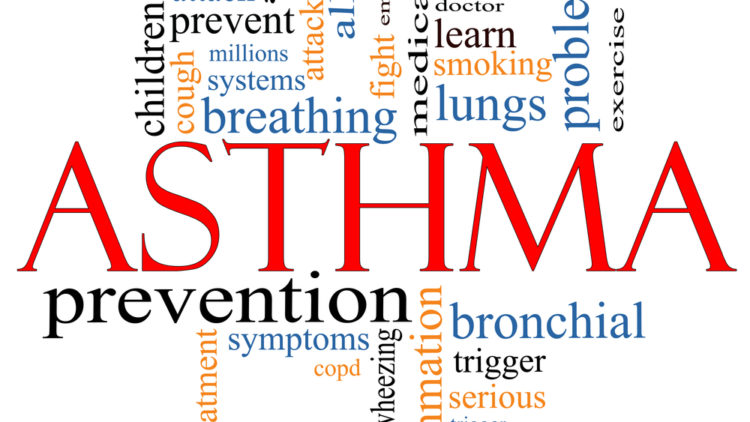Asthma is a chronic respiratory disease that may negatively affect the quality of your life. Hence, for asthma patients, it’s important to pay attention to your condition and work out an action plan that suits your needs and lifestyle.
However, it’s not always easy to identify the symptoms of asthma, as they vary from person to person. In addition, some symptoms may also be similar to those of other conditions such as flu.
Because of this, asthma can be challenging to manage, which may lead to life-threatening consequences. Below, we listed seven signs that your asthma is getting out of control.
 7 Symptoms of Poorly Controlled Asthma
7 Symptoms of Poorly Controlled Asthma
1. Chest pain or feelings of heaviness in the chest
Poorly controlled asthma makes it difficult for patients to breathe freely. When your condition gets worse, you may feel like your chest is constricted or heavy. You may also feel pain in your chest, making it even harder for you to breathe.
For instance, if you can usually walk a certain distance without feeling tired or short of breath but suddenly can’t, that may be a sign that your asthma is getting worse.
2. Saying no to outdoor activities more often
If you find yourself staying at home more often than usual because you feel fatigued or you feel like you can’t go through with your typical outdoor activities, that may be a sign of poorly managed asthma.Well-controlled asthma should not prevent you from enjoying your lifestyle and outdoor activities.
3. Feeling extremely fatigued all the time
If you find yourself waking up in the morning feeling tired and groggy even if you’ve had enough sleep, it might mean your body isn’t getting enough oxygen all throughout the night. When your lungs are working hard to move air in and out of the body freely, you may feel more tired than usual.
4. Using your quick-relief inhaler more than usual
If you have asthma, you should carry a quick-relief inhaler wherever they go, as you can’t usually tell when your asthma might flare up. If you find yourself relying on it too much, however, that might mean your current treatment is not that effective. Using your inhaler three or more times during the week may signal poorly controlled asthma.
5. Your coughing won’t go away and disrupts your sleep
Coughing is one of the most common asthma symptoms. For many asthma patients, non-stop coughing may disrupt daily activities. If you’ve been coughing all throughout the day and even through the night, that’s an extremely worrying sign that your asthma is getting out of control. Asthma should not prevent you from getting a good night’s sleep, which might otherwise lead to lack of rest and feelings of exhaustion.
6. Your airways produce thick mucus, especially during the mornings.
When you’re suffering from asthma, the airways become sore and swollen. In addition, they produce thick mucus, which induces non-stop coughing. This can get especially worse during mornings. You may feel your throat getting clogged and uncomfortable due to presence of thick mucus in the airways.
7. A drop in peak flow meter readings
A peak flow meter is a device that measures lung capacity and hence is necessary for asthma patients so they can have an objective measure of their condition. If you notice a drop in your peak flow meter readings, that is a sure sign of reduced lung capacity due to worsening asthma symptoms.
***
Poorly controlled asthma may be a sign that your current action plan is not effective. When your symptoms start to worsen, scheduling an appointment with your doctor is necessary so you can work out a better treatment plan that is personalized for your unique condition and lifestyle.
